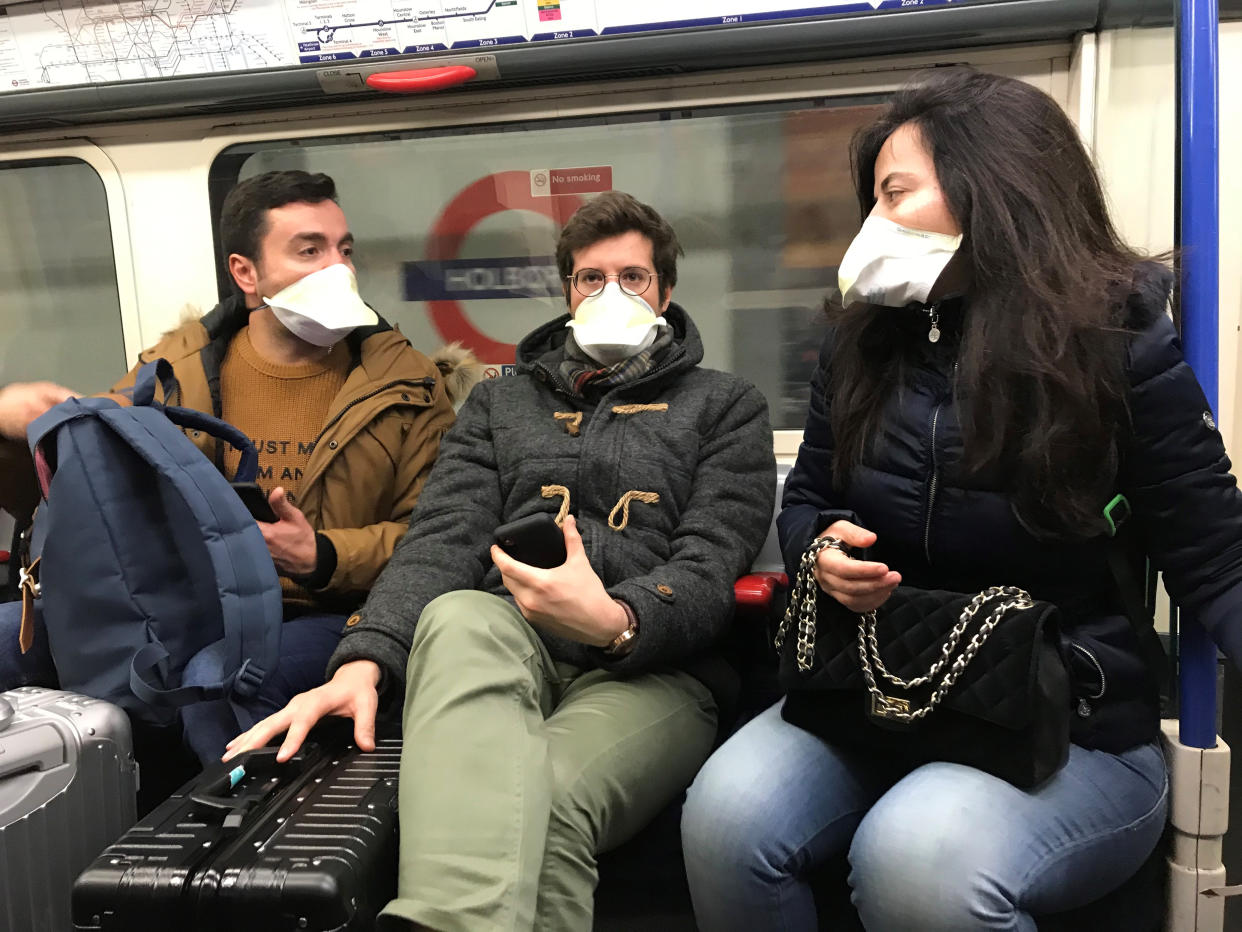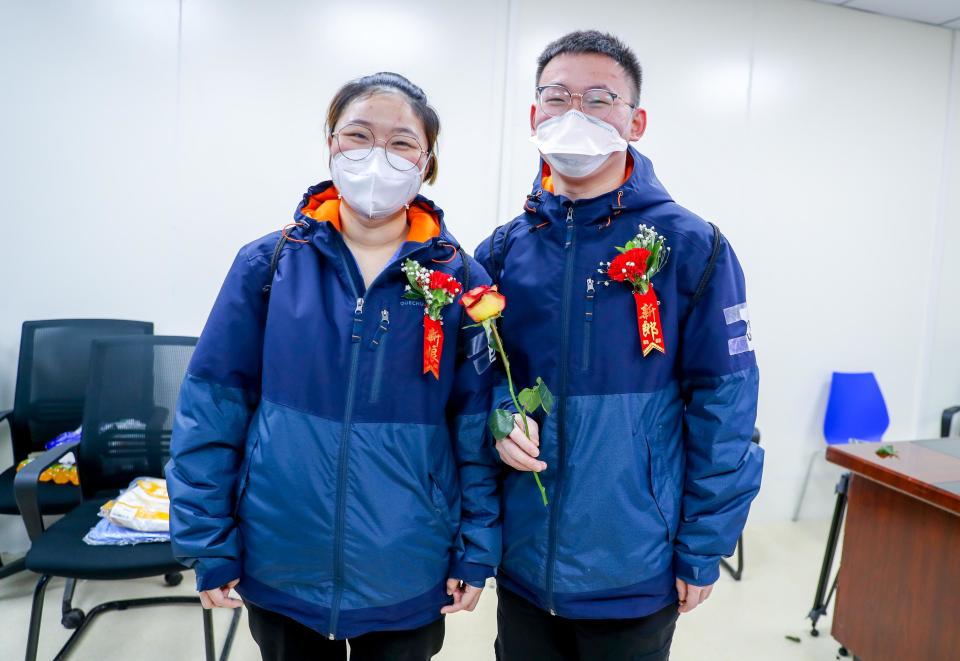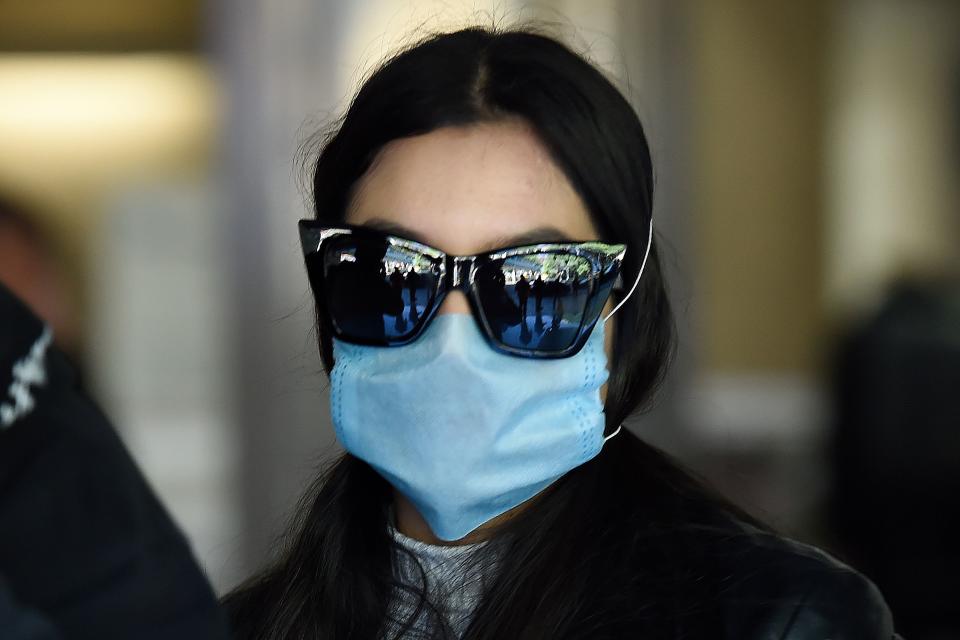How could anti-bacterial hand sanitisers protect against the coronavirus?

The new coronavirus is leaving many anxious, particularly given there is no “set” treatment.
While four in five cases are mild, some patients are succumbing to pneumonia, with the elderly and already ill most at risk.
Read more: Could a patient become 'reinfected' with the coronavirus?
To help stem the spread of infection, officials are urging the public to stock up on hand sanitiser.
It begs the question, how could an anti-bacterial gel ward off a completely different pathogen?

More than 83,000 cases of the coronavirus strain Covid-19 have been confirmed globally, of which over 78,000 are in mainland China, according to John Hopkins University data.
Since emerging in the Chinese city Wuhan at the end of last year, it has been identified in more than 40 countries, many thousands of miles from its epicentre.
While incidences appear to be tailing off in China, more than 2,300 cases and 13 deaths have occurred in South Korea alone.
The UK has 19 cases, with a British man dying from the infection on Friday after being aboard the “hotbed” Diamond Princess cruise ship.
Globally, the death toll is approaching 3,000.
Covid-19 has no specific treatment, with care being “supportive” while a patient’s immune system works to fight off the virus.
A lack of recognised therapies makes prevention all the more important.
The World Health Organization (WHO) urges people “regularly and thoroughly clean their hands with an alcohol-based hand rub or wash them with soap and water”.
Likewise, the US Centers for Disease Control and Prevention (CDC) recommends washing hands with soap and water for at least 20 seconds or using a sanitiser made up of 60%-to-95% alcohol.

Could hand sanitisers protect against coronavirus Covid-19?
Hand sanitisers are often sold as being “anti-bacterial”, while some also boast “virus-killing” properties.
With Covid-19 virtually unheard of just two months ago, its biology and genetic make-up is not fully understood.
How a generic sanitiser could combat the infection has left many, even experts, questioning their effectiveness.
When asked about their efficacy, Professor Devi Sridhar – from the University of Edinburgh – told Yahoo UK: “We should really be encouraging people to wash their hands with soap and water.
‘[We also] might need to think about how to modify buildings and public spaces to have more sinks and soap easily available in hallways, and not just in bathrooms”.
Professor Kao Rowland, also from the University of Edinburgh, voiced concerns sanitisers may cause people to think “they don’t have to wash their hands”.
He added, however: “If it’s the only way to clean your hands then it might help, but if it ends up replacing proper washing then there is a reasonable chance it won’t.
“It could be that in some countries [the WHO] made the assessment that it’s better than nothing.
“For the UK it would seem unlikely.”
Read more: The importance of ‘social distancing’ in warding off the coronavirus
While sanitisers may not “kill” the virus, they could “wash things away [or] remove them”, Professor Rowland told Yahoo UK.
Professor Nicola Stonehouse, from the University of Leeds, was more optimistic about the benefits of hand sanitiser.
“Anti-bacterial gels can have lots of different components, most have alcohol, which dries your hands when you use them,” she told Yahoo UK.
“It’s alcohol that will kill the virus.”
The CDC stresses washing hands with soap and water should be the go-to, but adds a hand sanitiser with at least 60% alcohol may “help you avoid getting sick and spreading germs to others”.
Professor Stonehouse referenced fellow coronaviruses severe acute respiratory syndrome (Sars) and Middle East respiratory syndrome (Mers), which killed 774 and 858 people during their 2004 and 2012 outbreaks, respectively.
“[Covid-19] is a different virus but there’s a lot of commonality,” she said.
“We know alcohol killed these viruses [Sars and Mers].”
Labels on sanitisers often list “alcohol denatured” as an ingredient. This involves the addition of chemicals to make the alcohol unfit for consumption, according to ThoughtCo.
Officials recommend hands be washed before preparing or eating food, after going to the toilet and when handling animals or their waste.
Other ways to protect yourself from the coronavirus Covid-19
Officials are urging people to avoid touching their face with “unclean” hands.
Covid-19’s only known method of transmission is via droplets sneezed or coughed out from an infected person.
The WHO therefore advises people “maintain social distancing”, keeping one metre (3ft) away from “anyone who is coughing or sneezing”.
Covid-19 symptoms tend to be vague and flu-like, such as fever, cough and breathlessness.
The WHO stresses people should “seek medical attention” if they develop the above.
Suspected patients should call in advance, with some GP surgeries and hospitals potentially advising they do not come in to help stem the spread of infection.
Even mild patients should “self-isolate” at home to protect those who could become seriously ill.
Read more: What could a coronavirus worst-case scenario really look like in the UK?
It is unclear how long people are infectious for, with the general consensus being around 14 days.
For those living with others, the CDC recommends they “stay in a specific room” and “use a separate bathroom, if available”.
To further stem the spread of infection, cough or sneeze into tissues, which should be promptly thrown away.
The WHO even urges people not to “spit in public”.
The benefits of masks are up for debate.
With the eyes exposed and coronaviruses generally small enough to get through the fabric, masks may not be a “guarantee” to staying infection-free.
Nevertheless, the CDC states patients “should wear a mask when around other people”.
It urges they do not share “dishes, drinking glasses, cups, eating utensils, towels or bedding”.
“High-touch surfaces” – like doorknobs, toilets and keyboards – should also be cleaned every day, it adds.
What is the coronavirus Covid-19?
Covid-19 is one of seven strains of the coronavirus class that are known to infect humans.
In severe cases, pneumonia can come about when the infection causes the alveoli (air sacs) in the lungs to become inflamed and filled with fluid or pus.
The lungs then struggle to draw in air, resulting in reduced oxygen in the bloodstream.
“Without treatment the end is inevitable,” said the charity Médecins Sans Frontières.
“Deaths occurs because of asphyxiation.”
While no one can say for sure where the virus came from, bats seem most likely.
The nocturnal creatures are thought to have been behind Sars and Mers.
Scientists from Peking University in Beijing suggested snakes may have been the “intermediate host” for Covid-19.
A team from South China Agricultural University later found it could have “jumped” from bats to humans via pangolins.



